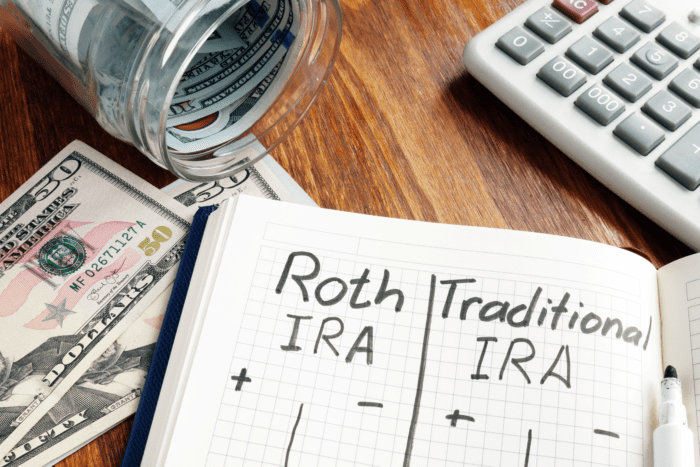Doug Gjerde, Wealth Advisor, Managing Partner, MBA, CEPA, CFP©
Tax-efficient investing is a way to make sure you get the most money possible from your investments.
If you are like me, you probably hate investment expenses. Expenses are a drag on your savings and your future security. And federal income tax can be one of the biggest, mostly invisible, expenses in investing.
I won’t lie to you. I know tax-efficient investing is not exciting. As with flossing your teeth, it’s essential yet tedious. However, unless you plan ahead, a significant portion of your savings may be wasted needlessly on taxes over the decades. Tax-efficient investing is one element of tax planning.
Simple choices while investing might influence how much of your gains you keep, how long your money lasts 1, and how much you preserve to spend throughout your retirement2. Below are some of the principles of tax-efficient investing.
Not all investments and accounts are taxed the same. You can increase tax efficiency by choosing the right investments for your account. If you choose the right assets and put them in the right places, you might be able to pay less in taxes while still making good returns on your money.
Tax-deferred accounts, tax-free accounts, and taxable accounts are the three most common forms of investment accounts. They each have advantages and disadvantages, but if planned well they can combine to create a tax-efficient portfolio. If you don’t build it correctly, you may wind up paying more in taxes than necessary or have your portfolio’s life shortened. Tax efficiency is boring but beneficial.
Different accounts, very different tax treatments
Tax-deferred accounts
Tax-deferred accounts hold money that is taxed only on the distributions (when the money is withdrawn). They are tax-advantaged accounts like Roth IRAs but with different tax rules and they include standard IRAs, 401(k)s, and 403(b)s. These are the accounts that allow you to receive a generous upfront deduction when you set money aside. But the flip side is that after your money grows and compounds your tax liability does too, and you will have to pay taxes on it when you take it out, like during retirement.3
Because taxes are postponed, investments that result in income, such as interest and dividends, make more sense in these accounts than in taxable accounts. In addition, investments that might generate short-term capital gains would be preferred in these accounts to taxable ones.
Required minimum distributions are another factor in these retirement accounts that can get people in hot water with the internal revenue service.
Roth IRAs and Roth 401(k)s, tax-free accounts
Roth IRAs are tax-free retirement accounts that were created in the 1990s. Roth 401(k)s are a type of 401(k) that came along later. Both can play key roles in tax-efficient investing.
You won’t receive tax benefits when you initially deposit the funds, as you would with an IRA or 401(k). But when you withdraw the money, it will be tax-free. And it compounds tax-free during your lifetime and potentially for ten years, or more, after your death.
The more money you put into your Roth IRA; the more retirement income you’ll have that is never taxed again. If you have decades until you’ll need to use it for spending, tax-free compounding might save you a lot of money1.
Some investments with the potential to make money quickly are good candidates for tax-free accounts. Another thing to consider is that investments that generate income along the way are not taxed on the income when it is earned in these accounts. The money in a tax-free account grows faster than the money in a taxable account because the returns are not taxed when earned, nor when withdrawn. That tax along the way is like an expense, dragging down your returns.
Taxable accounts
Taxable accounts hold assets that are taxed every year on their income and taxable capital gains. These include regular brokerage accounts, checking and savings accounts, and CDs (certificates of deposit). Since the money is taxed on its income as it is earned, these types of accounts are more sensitive to taxes than others and require extra careful management. Municipal bonds are a popular choice for these accounts because they generate tax-free interest. This means that you don’t have to pay taxes on the money that you make from the bond. Not everyone always benefits from municipal bonds. You need to think about your tax bracket when you are deciding whether to invest in municipal bonds. You also need to compare the after-tax return on other bonds to the municipal bonds to see which is more beneficial to you.
Disparities in how different investments are taxed
Short-term capital gains
When an asset is sold for more than its purchase price, the difference between the sale price and the purchase price is known as a capital gain. Short-term capital gains happen when you sell an asset that you have had for less than a year. If you hold an investment for more than one year, it is usually considered a long-term capital gain.
Short-term capital gains are taxed the same as other types of income, which means they are often taxed more aggressively than long-term capital gains. This means that you will usually pay between 12% and 35% in taxes on your short-term capital gains, depending on how much money you make each year.
This means that if you make short-term investments, it is better to do so in accounts that are tax-free or tax deferred.
Long term gains
If you hold an asset for more than one year, the profit you earn from it is called a long-term capital gain. The tax rate for long-term capital gains is usually lower than the tax rate for short-term capital gains. Long-term capital gains are taxed at a lower rate than ordinary income or short-term capital gains, often 15% or 20% and sometimes at 0%.
There is no one answer for how much you are taxed. The rate your long-term capital gains are taxed at depends on your tax bracket. Sometimes, if you hold onto an investment for a long time, you don’t have to pay any taxes on the money you make from it. If your income is in the bottom two tax brackets, you don’t have to pay taxes on any long-term capital gains.
Many times, mutual funds kick-off capital gain distributions which add to your tax burden even if you didn’t sell. This invisible tax burden can be a surprise. These capital gains distributions sometimes lead exchange-traded funds to be more tax-efficient investments.
Interest and dividends
Taxation of interest income and dividends differs depending on whether it’s classified as qualified or ordinary. However, certain types of fixed income securities are exempt from taxation, including municipal bond interest.
Qualified dividends
A “qualified dividend” is a dividend that is taxed at a lower rate than most other types of income. Qualified dividends are taxed at a reduced rate if the investor holds the shares for a certain amount of time. The minimum holding period is usually 60 days.
The tax rate that your qualified dividends and interest are taxed at depends on your tax bracket. If you’re in the bottom two brackets, you don’t have to pay taxes on any of these types of investment income. If you earn less than $37,950 (single) or $74,900 a year (married filing jointly), you don’t have to pay taxes on any of this type of investment income.
The maximum tax rate for qualified dividends depends on your level of taxable income, and maybe as high as 20%. This is a significant saving from the top tax rate of 39.6% that could otherwise apply to dividends taxed at ordinary rates.
Ordinary interest and dividends
Ordinary dividends are taxed at the same rate as your ordinary income. They don’t receive special tax treatment for their capital gains, and this may mean that they fall into a higher bracket and are taxed at up to 39.6%.
Municipal bond interest
Municipal bond interest is generally not taxable. That means you don’t have to pay any taxes on it, no matter how much money you make. Some are free of state and local taxes, and some are free of federal income taxes. Because of this, municipals pay less interest than taxable bonds. You need to know what your tax bracket is to figure out which option is best for you.
Conclusion
Not all investments and accounts are taxed in the same way. By selecting appropriate investments for your account, you may save money on taxes. If you choose the right assets and deposit them in the right places, you might be able to pay less in taxes while still earning a good return on your investment.
There are three different types of accounts: taxable accounts, tax-free accounts, and tax deferred. Each type of account has its advantages and disadvantages. When you combine them in a portfolio and make your investments with the greatest of care, you may save money on taxes while also extending the life of your portfolio. When you factor in taxes, the investments will grow tax-efficiently.
There are different types of investments, and each has its tax benefits. There are different rates of tax for different types of investment income, depending on how long you have owned the investment. For example, the government taxes money you make from selling stocks or property you own very differently depending on how long you have owned them. Some types of interest and dividends are taxed at a lower rate. The interest on municipal bonds is usually not taxed. Your investment portfolio should take advantage of tax diversification. This can help you to better manage your tax burden.
-
- The Value of a Gamma-Efficient Portfolio, David Blanchett, PhD and Paul Kaplan, PhD, Morningstar,2017
- Income Strategies: How to create a tax-efficient withdrawal strategy to generate retirement income, William Reichenstein, PhD, 2019
- Publication 590-B (2020), Distributions from Individual Retirement Arrangements (IRAs), Internal Revenue Service
This piece is not intended to provide specific legal, tax or other professional advice. For a comprehensive review of your personal situation, always consult with a tax or legal advisor.





